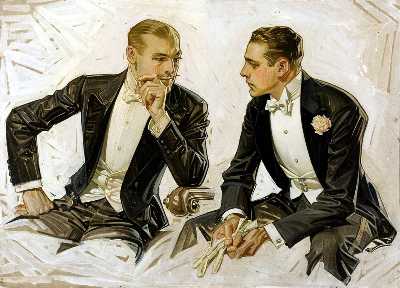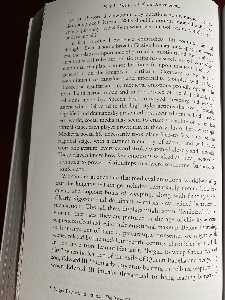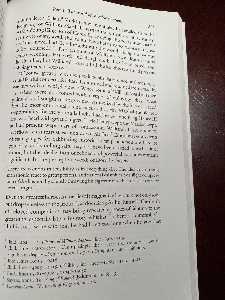anon_dony said in #3698 8mo ago:

An explosive thesis: the centrality of male homoeroticism to premodern production of manliness and great men. We're all familiar by now with a few key ideas:
1. The greeks, english, and aryan koryos boys in general were frequently homoerotic but not in the modern anonymous bathhouse chemsex sodomy-as-self-identity style. In particular, the institution where a man adopts a somewhat younger boy (of late teens) as muse, student, best friend, and occasionally lover was common and valued, and not like the modern pattern of homosexual pedophilic abuse.
2. Modern man is stuck in a gynocentric social prison with very little socialization as men among men, and this is a probable cause of many of our social and political pathologies. The mannerbund is the key lost institution, and for its lack we have little direct insight into the psychology of real masculinity.
3. The lack of any enforceable taboo against the horror of modern sodomy is a significant part of why male sociality has collapsed. See for example gay abuse fears in boy scouts, the neurotic half-taboo against close male bonds and physical affection for fear of it being a slippery slope into the Foucauldian bathhouse, the profanation of male physical ideals ("bodybuilding is gay, bro"), association of "the sausage fest" with sexual and social weakness, etc.
The author of this article builds on this foundation, his experience of all-boys school, and history and psychology of various male-male erotic practices to paint a very interesting picture: the mannerbund and homoeroticism are inseparable and the modern identification of homoerotic affection with sodomy is a lie and both consequence and cause of the destruction of male sociality.
He makes the wider case that the deliberate destruction of male spaces before and after the war is central to the decline of the west, and the constant distraction of easy females and chaperoning of boys by women makes it impossible now for great men to arise.
I didn't appreciate his dooming about islam overtaking europe and other such nonsense, but the essay is very interesting overall. At the least it's a great reminder of the importance and power of all-male space. There's a lot of good stuff in there (I haven't discussed his claim about different types of male sexual psychology for example) but the most interesting may be the implied challenge that we have to re-interpret homoeroticism to achieve the return of male sociality. That's a huge claim that I'd love to discuss more with you guys.
In my own mannerbund-adjacent experiences, I have seen nothing of the erotic element, but the undercurrent of great affection for each other held back by gay suspicion is definitely real. The mannerbund is clearly an institution of extreme importance that we must bring back, but what do you make of this claim that that's going to mean easing the taboo on male physical affection and sharpening the taboo against sodomy? Is this faggy nonsense or a major truth nuke?
referenced by: >>3702 >>3716 >>4698
An explosive thesis:

